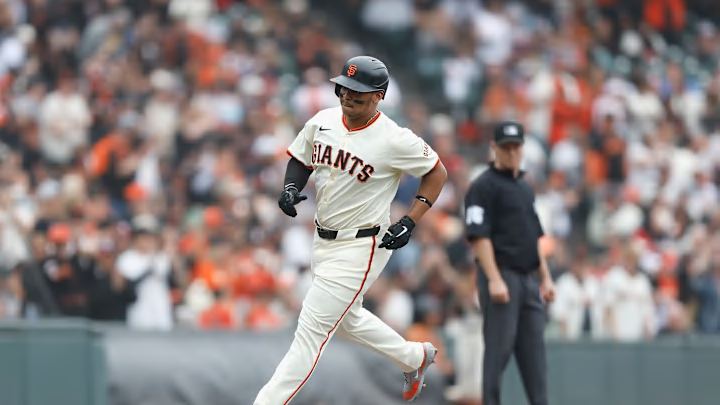On Sunday, SF Giants power-hitting bat Rafael Devers achieved a statistical oddity. He appeared in his 163rd game, becoming the first player to do so since Justin Morneau with the Minnesota Twins in 2008.
Midseason trade leads to rare statistical oddity for SF Giants power-hitting bat
According to Alex Pavlovic of NBC Sports Bay Area, Devers is the first Giants player to appear in more than 162 games since José Pagán in 1962. Oddly enough, he appeared in 164 games because the Giants and Los Angeles Dodgers were tied at 101 wins at the end of the year.
They faced off in a three-game series to break the tie, with the Giants taking that series and eventually reaching the World Series. Unfortunately, they dropped that series to the New York Yankees in seven games.
That scenario did provide for a cool statistical oddity, with Pagán being able to appear in 164 games. 63 years later, Rafael Devers joined that group.
The Giants did not play in more than 162 games this year. Rather, it was the scheduling and midseason trade that led to Devers appearing in 163 games.
The left-handed bat responded by blasting his 35th home run of the year to help lift the Giants to a 4-0 win over the Colorado Rockies. They completed the sweep, and finished the year with 81 wins.
Devers' accomplishment was not the only milestone of the game. Logan Webb made his 34th start and notched eight strikeouts to lead the NL with 224 strikeouts. Willy Adames also blasted his 30th home run of the year, becoming the first Giants hitter to reach 30 home runs since Barry Bonds in 2004.
It was a promising first season for Devers in San Francisco, even if the Giants fell short of the playoffs. Overall, he hit .252/.372/.479 (135 wRC+) with 35 home runs, 109 RBI, and 99 runs in 729 plate appearances split between the Boston Red Sox and Giants.
Devers recorded 20 home runs in 90 games with San Francisco, which is a good pace for possibly reaching 30 home runs in a Giants uniform next season. That said, the Giants will need to figure out why his strikeout rate spiked up to 29.4 percent following the trade.
More from Around the Foghorn:
